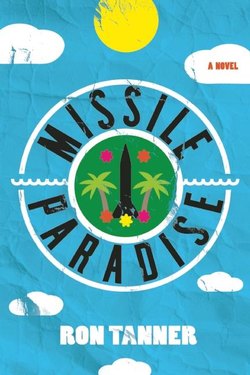Читать книгу Missile Paradise - Ron Tanner - Страница 13
На сайте Литреса книга снята с продажи.
ОглавлениеFIVE
Cousin Mike drives the loader like a Boston Whaler, one hand easily on the steering wheel, the other hand idle, his arm draped over the seat. The loader is a dusty orange tractor on four man-tall tires; it grumbles loud and chugs out choking clouds of diesel fumes. Mike makes the loader’s bucket rise high as he pulls away with another load of rocks. Jeton wants to drive the loader. But Jeton doesn’t know how to drive.
Mike turns out smartly, then guns away, bouncing in his seat as the loader dips and climbs. Lucky cousin! Jeton thinks. Mike has been working here for nearly a year. All of the Filipino foremen know him and seem to respect him. Mike’s hardhat sits back on his head the way the foremen wear theirs.
Jeton has no hard hat. He doesn’t have work boots either. Instead he wears his church shoes, which are too tight for him. He wears them without socks, his feet sweating and blistered.
As promised, cousin Mike got him this job. His mother thinks he is still in school. So does Nora. He has used cousin Mike’s cell phone to call Nora. She would not talk for long. When he said, “I’ve got to see you, mōtta!” she said, “Not now, Jeton. I’m super busy.” Mōtta: “partner,” “mate,” “wife.” The thought of her gone makes him queasy, like he has not eaten for days. He believes that she will change her mind. She must change her mind.
The first two mornings Jeton arrived for work, Mike tapped the big silver watch on his own wrist and said, “You get one of these, Jeton. It will make you sharp.”
Wājepādik.
Mike is full of advice. Mister Loader-driver. Mister Business Man. Mister Fore Man.
Jeton is the youngest of the six-person crew. The others are nearly thirty or older. Young men do not usually get work because there are too many older men looking. The others know that Mike is Jeton’s cousin but this doesn’t seem to matter to them.
Only one of them—the oldest man—has a hardhat, which is cracked down the middle and too small for him. It sits like half a coconut on his head.
They pull rocks and shovel gravel from coral pits that the Filipino men explode with dynamite. The holes they make with the explosions are big enough for a small speedboat. It takes Jeton and the others all day to clear out one or two of these, tossing the stone into the loader bucket.
After five days of this work, Jeton’s hands are scraped, swollen, and blistered. He gets so thirsty, he can’t drink enough soda—which he buys from young boys who come around with warm cans they have probably stolen from snack shops.
Even though nobody works fast, Jeton is the slowest. On his first day, after a few hours of sorting rock, Jeton said, “This sucks.” He said it several more times until one of the men mimicked a crying baby. Then they started calling Jeton “Eokkwikwi.” Crybaby.
They work at the eastern end of Ebeye, a flat stretch of rocky white landfill, just beyond the crowd of houses. Nora calls these pelak. Shacks. They are not colorfully painted out this way because these are the newest.
The causeway is a wide white road stretching nearly a mile through the shallow water that washes over the reef. Jeton cannot see the next island because it is too flat but he has heard that the causeway has nearly reached it. Anyone can walk to the end of the causeway to see for himself after the day’s work is done, but few do. Some have tried fishing from the causeway but the fishing is not good. Maybe because the work has muddied the waters on either side. Many of Ebeye’s fishermen talk about this, making guesses. Some shake their heads doubtfully and cluck their tongues.
The Marshallese people are ruining the islands, the Americans say. It is not clear, though, what the Americans want the Marshallese to do. Go away?
While waiting for the Filipino dynamite men to set their charges, Jeton and the others sit on rocks and share a cigarette.
Elbo, the man with the hardhat, who is old enough to be Jeton’s father, makes a joke as he surveys the clouds that are gathering. “Jeton, you bring soap for the shower?”
Jeton can hardly keep from nodding off, perched on a flat boulder that is almost too hot in the sun, waves and wind loud in his ears. It is bwiltōntōn, the hottest part of the day.
